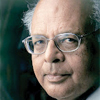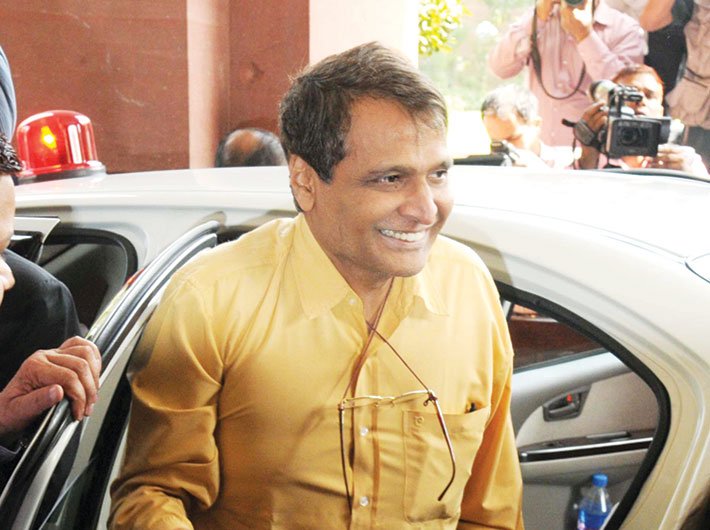Once the Congress lost its majority in parliament long ago, it had to reconcile itself to forming coalitions and sharing ministries. The Congress liked to keep important ministries like home and finance; its allies, enjoying a few uncertain years in power, preferred lucrative ministries. Their favourite cash cow was the railways. Corrupt ministers promoted corrupt bureaucrats. That is how the railways, once run with exemplary efficiency by British companies, became one of the government’s sleaziest arms after nationalisation.
But Narendra Modi is intent on cleaning up the railways. His first railway minister was Sadananda Gowda. Gowda acted swiftly; he appointed a committee of estimable people under Bibek Debroy. But in September 2014, Gowda’s son Karthik made the wrong news: just as he prepared to marry, an actress accused him of having married her before, and dragged him to court.
So in November, Modi brought back Suresh Prabhu from the wilderness as railway minister. Prabhu found senior railwaymen upset with Debroy, who had force-fed them with economic logic. They had their own recipe. Prabhu was sympathetic; he based his budget speech and a white paper he issued on their data and views, and promised a vision document later.
Faced by this high-level sabotage, Debroy worked fast; he submitted an interim report in March, and a final report in June. Though not yet published, it is probably not very different from the interim report, whose principal recommendation is a changeover to commercial accounting. There was a time when the British monarch levied whatever taxes he fancied. But then, his subjects insisted that his impositions must have their approval. That is how the practice of presenting an annual budget to parliament arose. That was before the invention of double-entry bookkeeping. The railways’ budgetary practices are still stuck in that era; the Debroy committee wants to bring them into the 21st century.
What difference would it make? Just now, capital expenditure – on tracks, stations, etc. – is shown in the budget, but their depreciation is provided for only approximately; and potential costs and contingent liabilities are not provided for. The committee wants accounts to be streamlined to take care of these things.
The accounts would show currently unaccounted costs, and reduce the railways’ profits. But the railways have neither the freedom to raise their prices nor an obligation not to make losses. What the railways need is a change in price policy; unless they can raise fares to cover costs and generate money for investment, change in accounting practice would make no difference.
The railways charge generous profit on freight, and use the extra money to subsidise passenger fares. There is a powerful vested interest behind the low fares in the form of the masses who jump on a train whenever they want to go home or anywhere else. Overcrowded trains also make it impossible to collect fares from ticketless travellers; that adds to the losses. The railways try to reduce losses by charging absurdly high first-class fares. So those who have money fly; those that travel first class in trains are politicians and senior government servants, who travel free.
The Debroy committee’s answer to rampant underpricing is an independent regulator, who would presumably force rational pricing on the railways. But if the regulator tries to raise fares or cancel loss-making trains, the MPs will be up in arms. So a regulator will make no difference; the railways will continue to be run uneconomically.
What would make a difference is if parliament enacted that railways’ losses must be reimbursed by the finance minister. If he suddenly finds crores being frittered away by the railways without his permission, he will ask parliament to raise taxes so that he can finance the losses, or to empower him to fix railway fares and freights, or ask for the railways to be corporatised – which would not be a solution because the railways would then become just another sick enterprise.
But maybe, the Debroy committee means that the railways should cover full costs and make a profit. That is a good idea, but a regulator cannot implement it. It can be done only by a minister; he must have a mandate from the prime minister, and be given time enough to implement it. Suresh Prabhu is that minister; he is thinking long-term. He should ask the prime minister for supreme power for five years. He should get the comptroller and auditor general to recast railway accounts into a simpler contemporary format. Next, he should get half a dozen of the best people into the railway board, and ask them to produce two plans – one for restructuring railway manpower, and one for aligning fares and freight to costs. If he gets that far, he will be well on the way to repairing the railways.
Desai is a veteran economist who served as chief economic advisor to the finance ministry during 1991-93.

